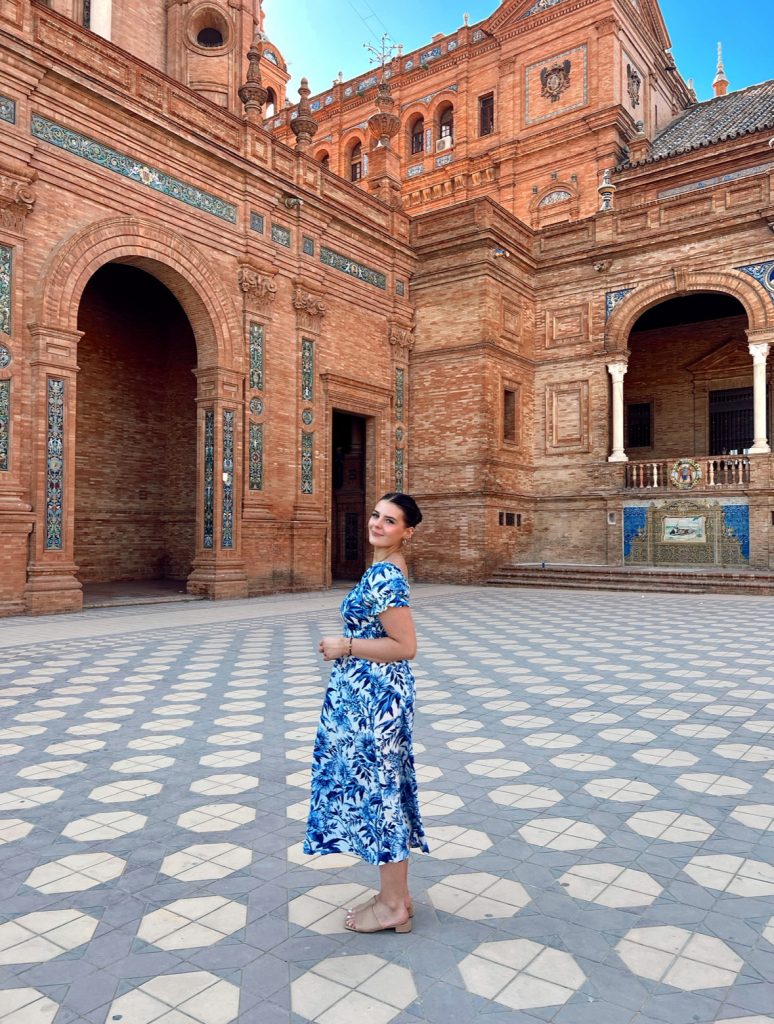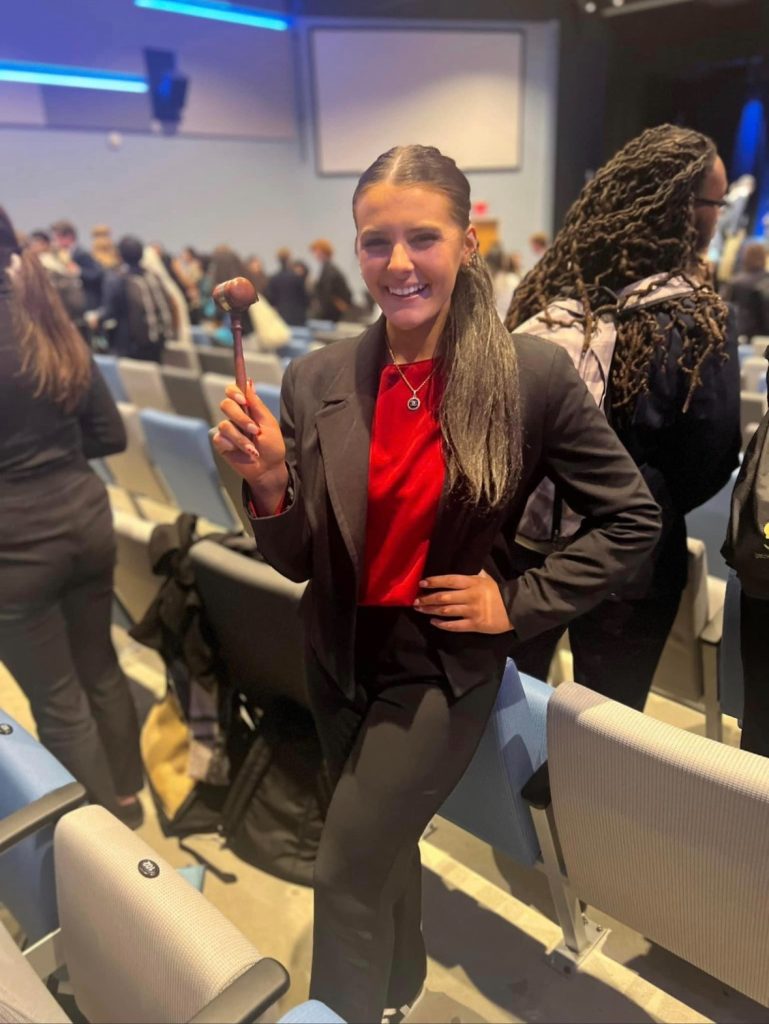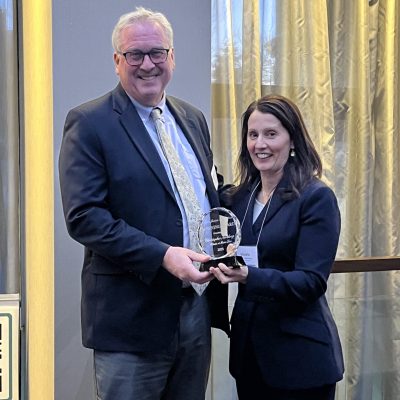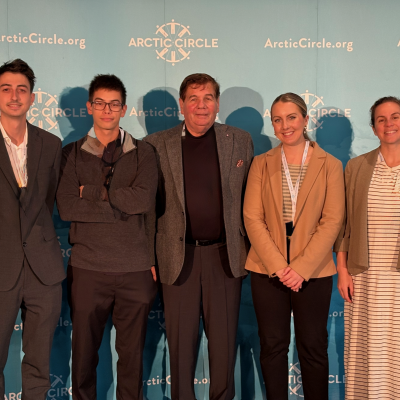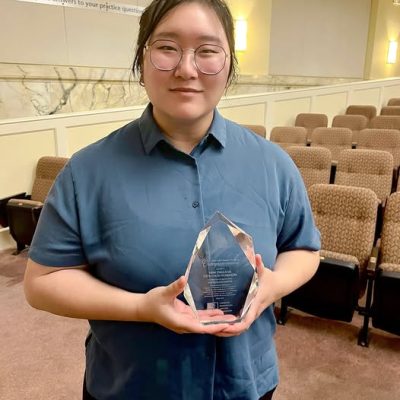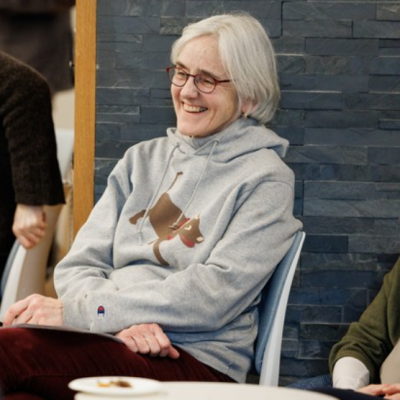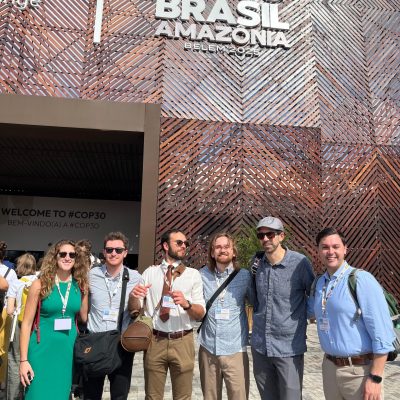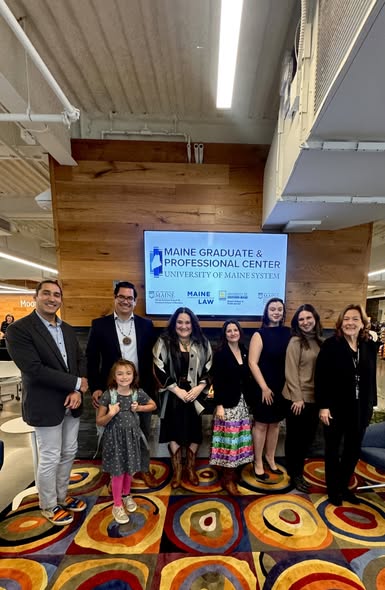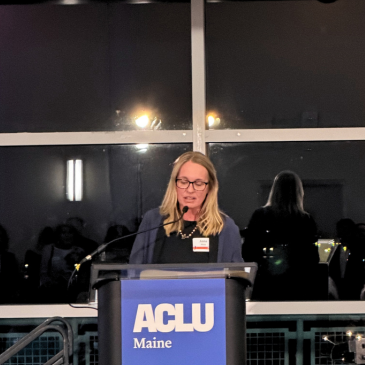The first in her family to pursue graduate education, Olivia Gardner brings with her to Maine Law a lifetime of determination, intellectual curiosity, and commitment to justice. Growing up in the tight-knit community of China Grove, NC, Gardner fostered these values by pursuing opportunities designed to challenge her understanding of the world around her.
At High Point University, Gardner majored in Spanish and Journalism. She also discovered her aptitude for legal thinking through mock trial, a pursuit she began in high school and carried through three years of college competition, supplementing her education with a Legal Studies minor. Leadership came naturally: she served as president of her sorority, played on the softball team, and sought out opportunities that challenged her to grow.
A transformative six-week summer in Seville, Spain, sparked a drive to live and work abroad. That experience eventually led her to a Fulbright fellowship in Ecuador, where she spent the past year teaching public speaking, debate, essay writing, and conversation courses at the University of Cuenca. She also designed and taught her own first-semester Spanish course for 45 students. Beyond the classroom, her supplementary Fulbright project—a blog profiling working-class Ecuadorians—captured stories through interviews and evocative photographs, amplifying voices often left unheard.
Gardner’s time in Ecuador also deepened her understanding of the intersection between environmental degradation and migration. For her Fulbright blog, she interviewed survivors of environmental crises – including a woman displaced by a devastating mudslide and who spoke of family members crossing the perilous Darién Gap to reach the U.S.–Mexico border. His experience, she said, will stay with her forever, in part because it cemented her goal of pursuing work at the intersection of immigration and environmental law.
“I went to Ecuador knowing I wanted to do immigration law,” she added. “What I wasn’t expecting was to become so engrossed by the idea that immigration and environmental change are two sides of the same coin.”
In Maine Law, Gardner found a place where these deepening interests aligned with the school’s flagship programs. Selected for the Refugee and Human Rights Clinic fellowship, she looks forward to honing her advocacy skills, which she values for their unique blend of analytical rigor and human connection.
For Gardner, the journey to law school is about more than a career. It is about rewriting the narrative of what it means to come from a small southern town—showing that justice and peace can be championed from every corner of the country.
“Working in the Refugee and Human Rights Clinic with Professor Welch feels like the culmination of my academic life,” she continued. “I want to show that there are people from my community who are committed to spreading justice and peace—in the legal world and beyond.”

